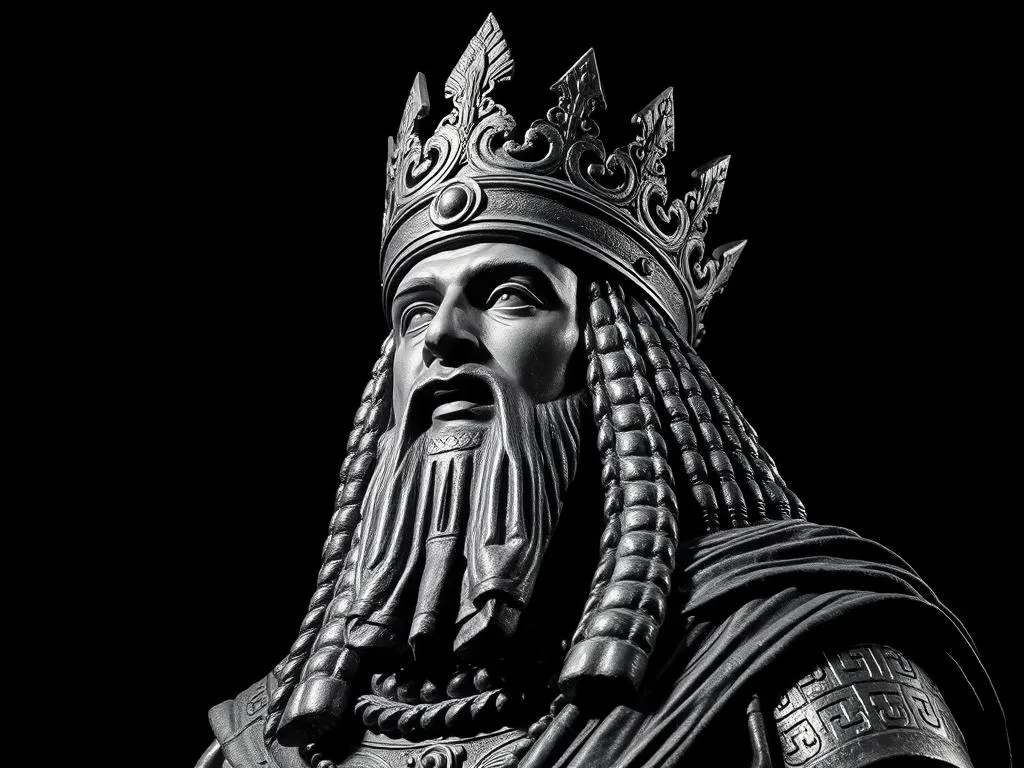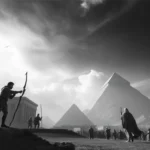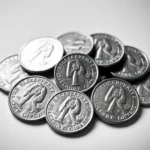King Nebuchadnezzar Dream Meaning: Unveiling the Prophetic Vision

Introduction
In the annals of biblical history, the king Nebuchadnezzar dream stands out as a pivotal moment, revealing insights into the divine plan and the future of empires. This captivating vision, recorded in the Book of Daniel, has intrigued scholars and believers alike for centuries. Understanding the king Nebuchadnezzar dream meaning can provide us with valuable lessons and guidance, as we navigate the complexities of our own lives and the world around us.
The king Nebuchadnezzar dream is a powerful reminder that even the mightiest of rulers are subject to the will of the Almighty. As we delve into the interpretation of this remarkable vision, we can gain a deeper appreciation for the sovereignty of God and the unfolding of His divine plan.
The King Nebuchadnezzar Dream: A Prophetic Vision
The king Nebuchadnezzar dream is recorded in the second chapter of the Book of Daniel. Nebuchadnezzar, the powerful Babylonian king, had a disturbing dream that left him troubled and seeking its interpretation. Daniel, a young Jewish exile in Babylon, was summoned to the king’s court to decipher the meaning of the vision.
In the dream, Nebuchadnezzar saw a large statue with a head of gold, chest and arms of silver, belly and thighs of bronze, legs of iron, and feet of iron and clay. Suddenly, a stone cut out without hands struck the statue, shattering it into pieces, and the stone grew into a great mountain that filled the entire earth.
Interpreting the King Nebuchadnezzar Dream
The interpretation of the king Nebuchadnezzar dream provided by Daniel reveals a profound and far-reaching message. Each part of the statue represents a successive world empire, with the head of gold symbolizing Babylon, the chest and arms of silver representing the Medo-Persian Empire, the belly and thighs of bronze signifying the Greek Empire, and the legs of iron and feet of iron and clay depicting the Roman Empire.
The stone that struck the statue and grew into a great mountain is often interpreted as the kingdom of God, which will ultimately overthrow all earthly kingdoms and establish an everlasting kingdom.
The Babylonian Empire
The head of gold in the king Nebuchadnezzar dream represents the Babylonian Empire, which was the dominant power at the time of the vision. Nebuchadnezzar, as the ruler of Babylon, was the “head of gold” – a symbol of the wealth, power, and grandeur of his kingdom.
The Medo-Persian Empire
The chest and arms of silver in the king Nebuchadnezzar dream symbolize the Medo-Persian Empire, which would rise to power after the fall of Babylon. This empire, represented by the silver, was less glorious and powerful than the Babylonian Empire, but still held significant influence.
The Greek Empire
The belly and thighs of bronze in the king Nebuchadnezzar dream depict the Greek Empire, which would eventually conquer the Medo-Persian Empire. The bronze symbolizes the strength and military prowess of the Greek forces, led by Alexander the Great.
The Roman Empire
The legs of iron and feet of iron and clay in the king Nebuchadnezzar dream represent the Roman Empire, which would succeed the Greek Empire as the dominant world power. The iron symbolizes the strength and durability of the Roman Empire, while the mixture of iron and clay suggests the eventual weakening and fragmentation of this empire.
The Stone Kingdom
The most significant aspect of the king Nebuchadnezzar dream is the stone that struck the statue and grew into a great mountain. This stone, cut out without human hands, is often interpreted as the kingdom of God – a spiritual and eternal kingdom that will ultimately triumph over all earthly powers.
The stone’s growth into a great mountain that fills the entire earth suggests the universal and everlasting nature of God’s kingdom. This vision points to the eventual establishment of a divine, unshakable kingdom that will endure forever, in contrast to the temporary and fragile nature of human empires.
Lessons from the King Nebuchadnezzar Dream
The king Nebuchadnezzar dream offers several valuable lessons for us today:
-
The Sovereignty of God: The dream reminds us that even the mightiest of rulers are subject to the will and plan of God. Earthly kingdoms may rise and fall, but the kingdom of God will endure forever.
-
The Transience of Earthly Power: The successive empires represented in the dream serve as a reminder that earthly power and glory are fleeting. True and lasting fulfillment can only be found in the eternal kingdom of God.
-
The Inevitability of God’s Plan: The dream reveals the unfolding of a divine plan, which cannot be thwarted by human efforts. The kingdom of God will ultimately triumph, regardless of the machinations of earthly powers.
-
The Call to Faithfulness: The dream encourages us to remain steadfast in our faith, even in the face of worldly challenges and tribulations. Our ultimate hope should be in the kingdom of God, which will outlast all earthly kingdoms.
Conclusion
The king Nebuchadnezzar dream stands as a powerful testament to the sovereignty of God and the unfolding of His divine plan. Through this captivating vision, we are reminded that earthly kingdoms and powers are temporary, while the kingdom of God is eternal and unshakable.
As we reflect on the meaning of the king Nebuchadnezzar dream, may we be inspired to deepen our faith, trust in God’s plan, and eagerly await the establishment of His everlasting kingdom. By doing so, we can find hope, purpose, and guidance in the midst of the ever-changing tides of human history.








